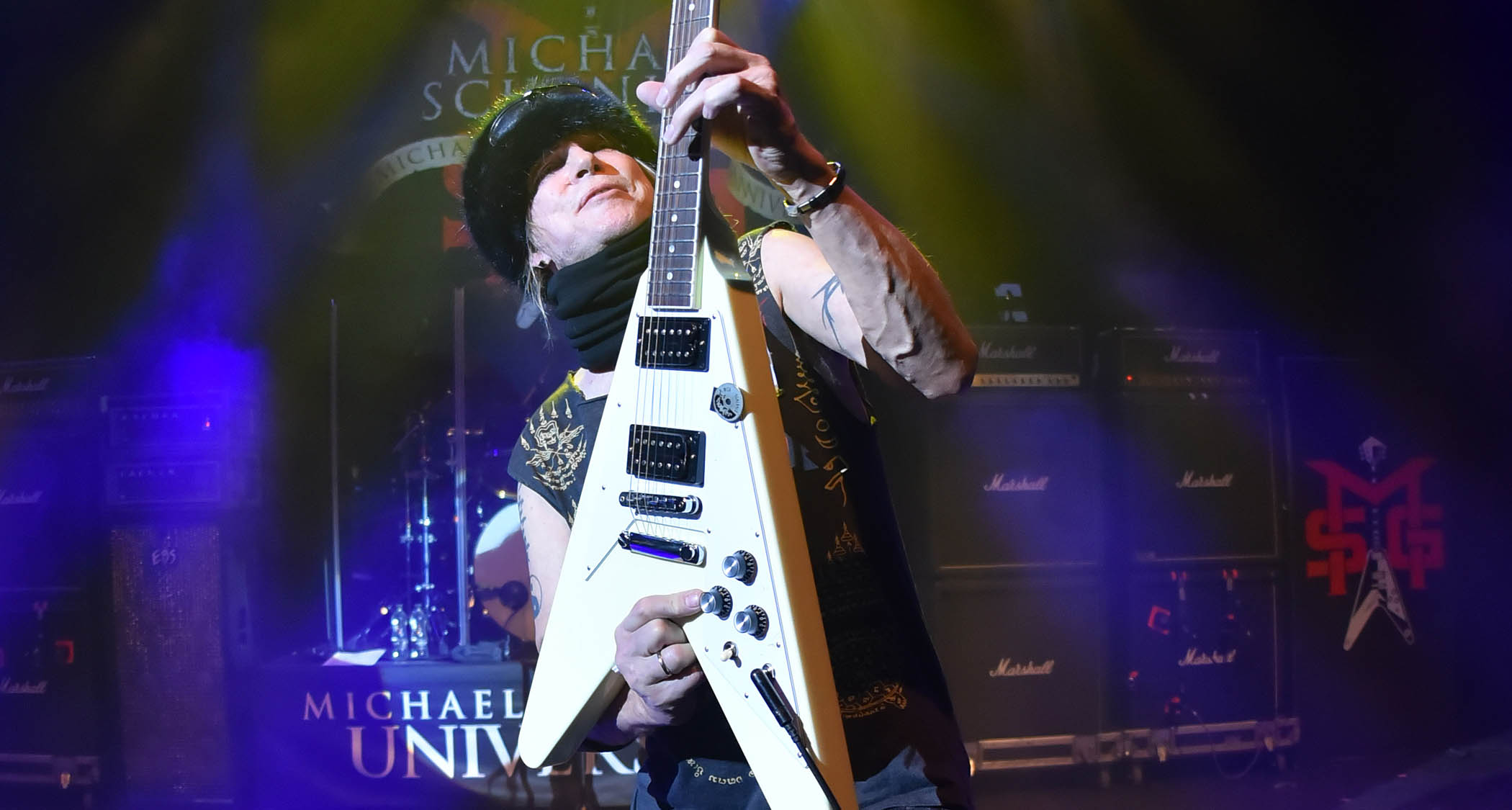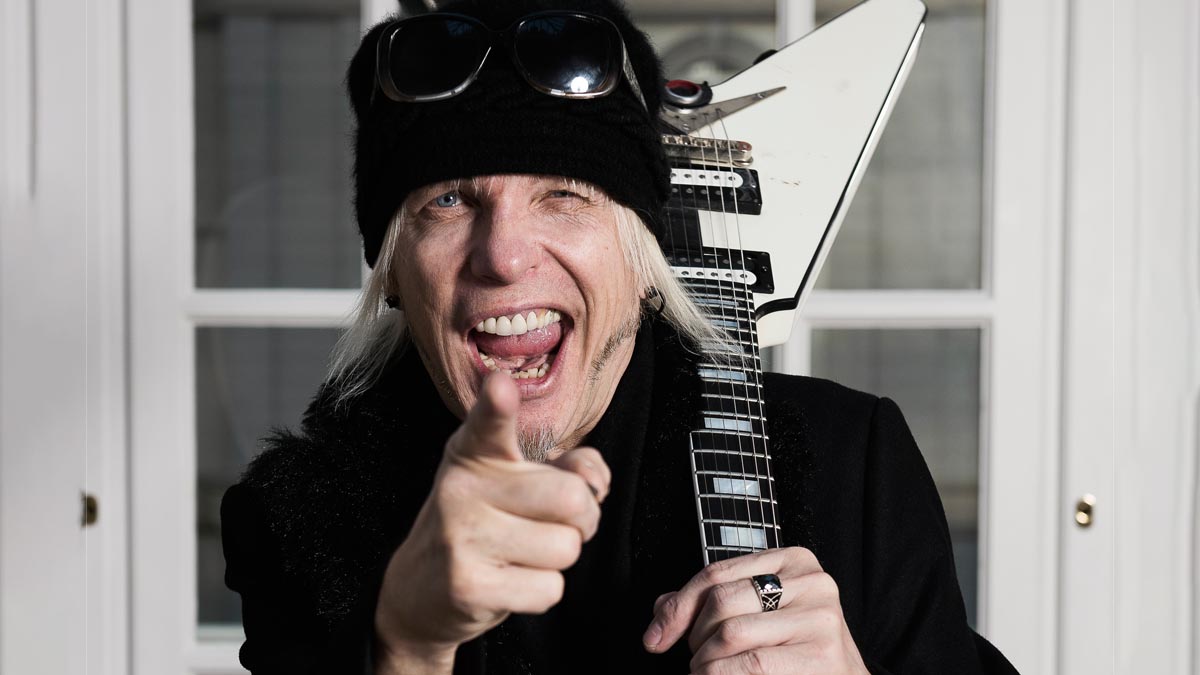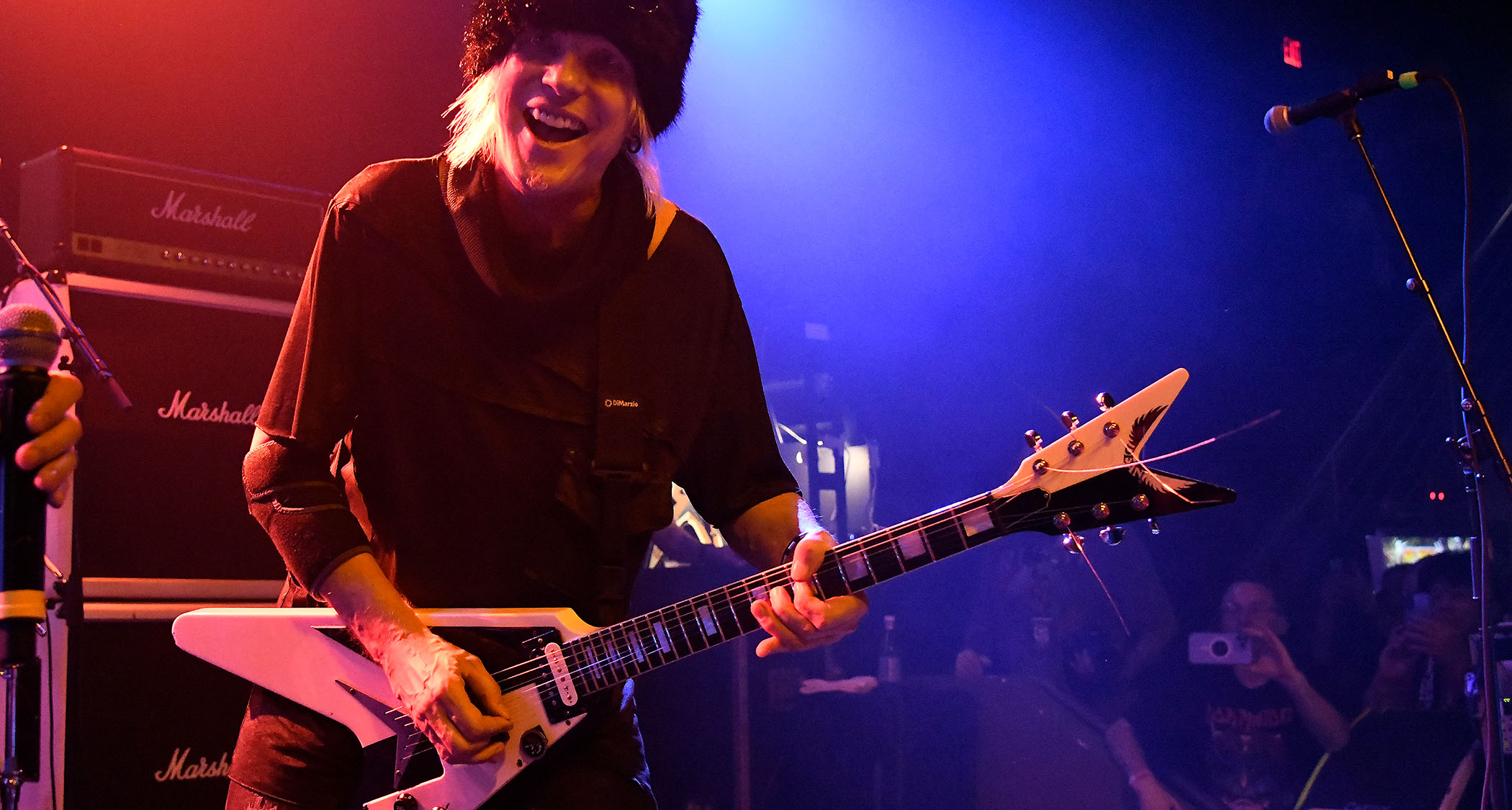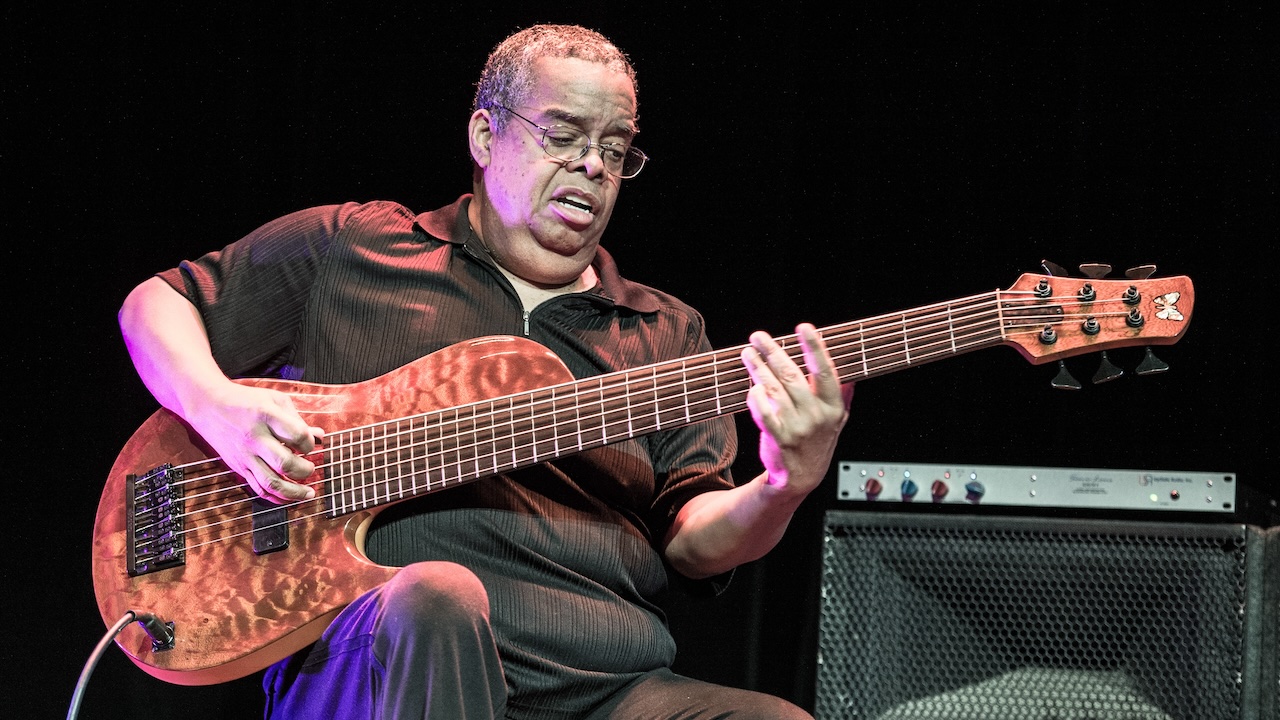“Slash came to the studio, and told Axl that he was on his way to do this with me – Axl was keen to sing a few songs”: Michael Schenker on celebrating UFO with Axl Rose, Slash and Dee Snider, and why he's come full circle with Gibson
My Years With UFO finds the effervescent Schenker revisiting seminal tracks in the company of rock legends, some Flying Vs, and his trusty Marshall JCM800 2205, an amp so good everyone steals it

All the latest guitar news, interviews, lessons, reviews, deals and more, direct to your inbox!
You are now subscribed
Your newsletter sign-up was successful
Michael Schenker put together his newest record, My Years with UFO, with two objectives – as a celebration, and as an education.
“It’s the 50th anniversary of my first album with UFO – Phenomenon, in 1974 – and so I wanted to do something special,” Schenker explains to Guitar World. In doing so, he continues, “It was a good opportunity to give newcomers more details and information about the band, who the songs were written by, and what this music is. Because we pass everything to the next generation.”
To be sure, UFO’s music has been lauded and absorbed by several generations since Schenker’s original run with the British band (prior to joining, the German-born Schenker had been playing with his older brother, Rudolf, in the original version of the Scorpions).
Their clutch of albums together in the Seventies, which includes classics like the aforementioned Phenomenon, 1975’s Force It, and 1977’s Lights Out, as well as the seminal 1979 live document, Strangers in the Night, constitutes one of the more impressive stretches of any hard rock act before or since.
To acknowledge that history, Schenker, who served as lead guitarist and, along with singer Phil Mogg, primary songwriter, tackles 11 UFO tracks from the era, from Doctor, Doctor and Lights Out to Rock Bottom and Natural Thing, on the new collection.
He also drafts a range of Schenker and UFO devotees – among them Axl Rose (on Love to Love), Slash (Mother Mary), Dee Snider (Natural Thing), Joel Hoekstra (also Natural Thing), and Stephen Pearcy (Shoot, Shoot) – to help him bring them to life once again.
The result is a record that demonstrates that this music is as dynamic and vital today as it was when it was first released a half-century ago. As is Schenker, whose jaw-dropping technique and aggressive attack have made him an inspiration to scores of rock and metal guitarists – a fact that is on full display in every riff and solo on My Years with UFO.
All the latest guitar news, interviews, lessons, reviews, deals and more, direct to your inbox!
As for why the songs, and Schenker’s guitar playing, persist? The now 69-year-old artist has a theory.
“Ever since I was 15, I have been focusing on pure self-expression,” he says. “There was never a point in me doing what other people do. I needed to do something that came from inside me, where my uniqueness is. I was just being myself, and that’s all I’ve ever done. And it’s still so much fun.”
How did you go about choosing the artists that would perform with you on My Years with UFO?
“When I knew I wanted to do the recordings of my songs, we started to come up with ideas. And it was ‘Hey, why don’t you try…’ And people started to come from all sides. When I went to do the Monsters of Rock Cruise, I bumped into Stephen Pearcy on the boat and he said, ‘Hey, Michael, we love you!’ And so I took the opportunity to ask him if he was interested in singing.
“And then I went to an awards ceremony in Wales, and Dee Snider showed up and he was talking in my ear about how much he loves UFO. So I asked him, too, and I was absolutely amazed by what a great voice he has. When I heard Natural Thing, I was so impressed.
“Then with Slash, he is an absolute Michael Schenker fan. He came to the studio in Frankfurt where we were recording, and he was telling Axl that he was on his way to do this with me. And Axl told Slash that he was keen to sing a few songs.”
Axl does a great version of the epic Lights Out ballad, Love to Love. But were there other songs he tried in the studio?
“Yes. Axl ended up singing Too Hot to Handle and Only You Can Rock Me, but he decided to focus on Love to Love. He did an absolutely amazing job on that.”
The version of Mother Mary that Slash plays on has the two of you trading licks back and forth. It’s a great showcase for your styles. Did you record that together?
“That was the idea. When Slash came to the studio, I had my amp set up, and Slash actually played through it. But I had already recorded my parts, and so we decided it was much better if we kept that and had Slash fill in the gaps where I left space for him. And that’s what we ended up doing. It was much better and much easier that way.”
What gear did you use on the record?
“For guitars, I’m back into Gibsons. I asked them to send me a couple, and I started using them again for the first time after all these years. They gave me a black Flying V, and also a white one, and that’s exactly how I started out before I had the idea of a black-and-white guitar. It’s like a cycle going back to the beginning.
“So I got these guitars around June of last year, and I’ve used them for live concerts and for all the records I’ve recorded since, while they’re making me a Michael Schenker model. I’m not the guy who looks for numbers and models and all that; I don’t ask many questions. But I really like these two guitars. Gibson must have handpicked them for me and given me something that is the best they have, I would assume, because they sound really good.”
How about guitar amps and pedals?
“My amp was the usual [Marshall JCM800] 2205. People keep stealing amplifiers from me because they like my sound, and so I have to keep fishing for new ones. But it’s always the same model – the 2205.
“The last one that I got, I’ve played it for about five years without anybody taking it away from me. So I guess it’s the same one that I’ve been using live and for the last few records, including this one. As far as pedals, I have them in the studio, but I don’t really use them while I’m recording. But I connect them, because I’m basically in there with my live setup.”
How did you approach your solos? Did you want to stick closely to the originals, or did you try new things?
“It’s a bit like this: Some years back [producer] Mike Varney invited me to play on a couple of records with David Pattison [for a covers project called the Schenker-Pattison Summit].
“He said, ‘Michael, I want to send you the songs to listen to so you can do the solos.’ I said, ‘Don’t send them to me. I just want to play.’ I did the same thing with this album. I did what I remember of it, and then I just went from there. It became like a mixture between a studio recording and a live recording.”
You can never compare anything from today with tomorrow or with yesterday, because it has a different scenery
It’s also, in a sense, a mixture of the past and the present.
“Well, my whole life is a development. Every day is a new day, with new surroundings. You can never compare anything from today with tomorrow or with yesterday, because it has a different scenery.
“It’s like a car that came out in the Fifties that maybe looked very good, but in the Sixties it started to look weird. It’s a bit like that. For me, I embrace what I embrace in the moment. But the next day, or the next year? That’s a different moment.”
You’ve had a tumultuous history with UFO, having left and rejoined them several times through the decades. The current version, led by Phil Mogg, disbanded earlier this year, not too long after Mogg suffered a heart attack. Were the group ever to reform again, would you consider playing with them?
“Well, UFO to me has always been about the original chemistry, and unfortunately [keyboardist] Paul Raymond and [bassist] Pete Way are not here anymore, so that cannot be done.
“The only ones left are [drummer] Andy Parker and Phil Mogg and myself, and Phil had a heart attack. So I have no idea what is going on. But I don’t focus on anything like that. I just wait until somebody taps me on the shoulder and then I review what the question is.”

You’ve been plenty busy in recent years with a variety of projects, including rebooting the Michael Schenker Group, aka MSG. What do you have coming up?
“My idea right now is to release three albums and sum up what I’ve been doing the last 50 years, which is basically UFO, MSG, and instrumental music. I wanted to focus on those three aspects.
“And so the next album I did after I finished My Years with UFO is a new MSG album, which is called Don’t Sell Your Soul. And the third album, which was supposed to be an acoustic-electric instrumental record, we took it a step further and now it has vocals and drums and all that.
“But it’s a very special album. I think people will be shocked when they hear it, that this is me. It’s called Freedom of Expression, and it probably won’t be out until 2026. But it’s my favorite album at the moment. It’s very timeless and just completely off the wall, but very beautiful.”

You’ve been so influential to so many musicians and bands. Are there newer acts that you listen to?
“Well, I haven’t really listened to other music for 50 years, so that is another anniversary as well! [Laughs] Because you know, the brain is like a sponge. In order to stay away from being influenced, you have to make a decision.
“And like I said, my mission is pure self-expression. So I have had to sacrifice being a consumer. Because of that, the only people that I really know are all the great ones from the late Sixties. I have Jeff Beck and Jimmy Page from the generation before me, and I’ve passed my music on to the next generation – bands like Metallica and Guns N’ Roses and so on.
“For a long time, I was confused how people would think that I was as important to them as Led Zeppelin was to me. That was hard for me to understand. But I’m starting to realize that’s how it works. It gets passed on and it goes forward, step by step. It’s a natural thing.”
- My Years With UFO is out now via EARmusic.
Rich is the co-author of the best-selling Nöthin' But a Good Time: The Uncensored History of the '80s Hard Rock Explosion. He is also a recording and performing musician, and a former editor of Guitar World magazine and executive editor of Guitar Aficionado magazine. He has authored several additional books, among them Kurt Cobain: Montage of Heck, the companion to the documentary of the same name.








